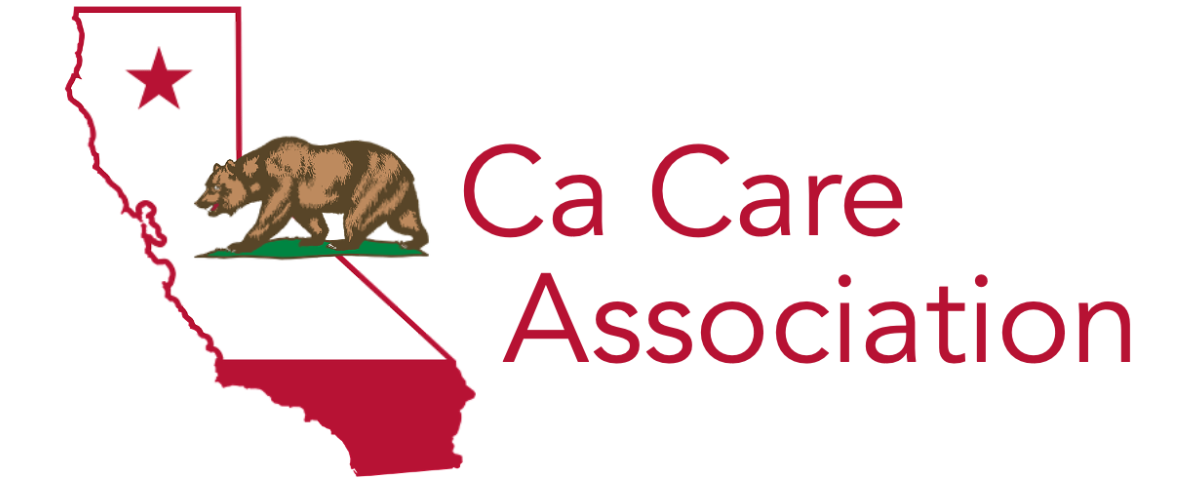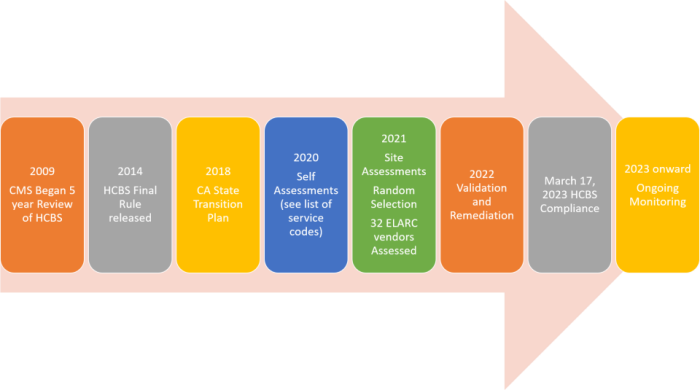
Home and Community-Based Services Support
HCBS
The Ca Care Association is an organization that has established itself as a leading expert in Home and Community-Based Services (HCBS) and Person-Centered Planning. Our expertise is founded on Mark John M. Alipio, Founder; active participation in the HCBS Advisory Group, which provides development, in-depth analysis, and guidance on the requirements for home and community-based settings.
Their involvement in this group has allowed them to gain a comprehensive understanding of the issues and processes necessary for compliance with the federal HCBS regulations. Additionally, Ca Care Association has extensive experience in Person-Centered Planning, a critical aspect of providing quality care that involves actively engaging and empowering individuals in decision-making. Through their expertise in HCBS and Person-Centered Planning, Ca Care Association has become a trusted resource for individuals and organizations seeking guidance in meeting the evolving requirements of home and community-based care.
Ensuring Quality Care and Support: Adhering to CMS Final Rule for Home and Community-Based Services in California
To provide individuals with community-based support as an alternative to institutional care, Home and Community-Based Services (HCBS) were created. In 2014, the Centers for Medicare & Medicaid Services (CMS) issued new federal regulations, which mandated that homes and programs providing HCBS must meet specific criteria. The Department and its collaborators are working together to adhere to the Final Rule by implementing the requirements for home and community-based settings.
The CMS Final Rule could potentially impact all individuals receiving or providing HCBS services, and efforts are currently underway in California to comply with these new regulations. On July 14, 2020, CMS released guidance to states announcing an extension of the transition period for meeting the HCBS Final Rule requirements by one year, until March 17, 2023, due to the COVID-19 pandemic. The relevant guidance can be accessed here:
What are Home and Community Based Services? (HCBS)
Home and community-based settings offer long-term services and support recognized under the federal Medicaid (Medi-Cal) Program, known as HCBS. These services can comprise both medical and non-medical support. Standard medical services may include case management (such as support and service coordination), homemaker, home health aide, personal care, adult day health services, habilitation (both day and residential), and respite care, among others. In addition, states have the option to propose "other" types of services that can aid in transitioning individuals from institutional care to their homes and communities.
Statewide Transition Plan
The California Department of Health Care Services (DHCS), in partnership with other agencies such as the Department of Developmental Services (DDS), the California Department of Aging (CDA), and the California Department of Public Health (CDPH), as well as public and stakeholder input, has developed a multi-year Statewide Transition Plan (STP) to ensure compliance with new rules. The STP covers all existing California programs impacted by the home and community-based settings requirements, including the HCBS Waiver for Californians with Developmental Disabilities and the DDS 1915(i) State Plan program. The plan was initially approved on February 23, 2018, and requires final approval from CMS before March 2023. However, new HCBS programs are not covered by the Statewide Transition Plan and must comply with HCBS rules upon implementation.
Updates to the STP were made in May 2021 and are available on the DHCS website. A public comment period for stakeholders and the public ran from October 14, 2022, to November 13, 2022, with more information on the DHCS website. Additionally, guidance and training on the HCBS Final Rule, as well as access to other states' transition plans, can be found on the CMS HCBS webpage.
10 Final Rule on Home and Community-Based Services
-
The setting is integrated in, and supports full access of individuals receiving Medicaid HCBS to the greater community, including opportunities to seek employment and work in competitive integrated settings, engage in community life, control personal resources, and receive services in the community, to the same degree of access as individuals not receiving Medicaid HCBS.
-
The setting is selected by the individual from among setting options, including non- disability-specific settings and an option for a private unit in a residential setting. The setting options are identified and documented in the person-centered service plan and are based on the individual’s needs, preferences, and, for residential settings, resources available for room and board.
-
Ensures an individual’s rights of privacy, dignity and respect, and freedom from coercion and restraint.
-
Optimizes but does not regiment individual initiative, autonomy, and independence in making life choices, including, but not limited to, daily activities, physical environment, and with whom to interact.
-
Facilitates individual choice regarding services and supports, and who provides them.
-
The unit or dwelling is a specific physical place that can be owned, rented or occupied under a legally enforceable agreement by the individual receiving services, and the individual has, at a minimum, the same responsibilities and protections from eviction that tenants have under the landlord/tenant law of the State, county, city or other designated entity. For settings in which landlord/tenant laws do not apply, the State must ensure that a lease, residency agreement or other form of written agreement will be in place for each participant and that the document provides protections that address eviction processes and appeals comparable to those provided under the jurisdiction’s landlord tenant law.
-
Each individual has privacy in his/her sleeping or living unit:
-Units have entrance doors lockable by the individual, with only appropriate staff having keys to doors as needed.
-Individuals sharing units have a choice of roommates in that setting.
-Individuals have the freedom to furnish and decorate their sleeping or living units within the lease or other agreement.
-
Individuals have the freedom and support to control their own schedules and activities, and have access to food at any time.
-
Individuals are able to have visitors of their choosing at any time.
-
The setting is physically accessible to the individual.





